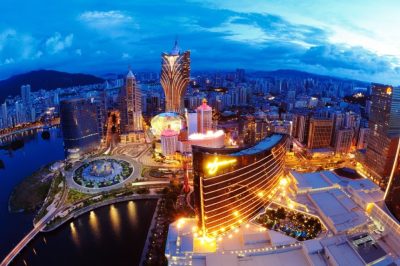 Casino patrons are not the only people threatened by the dangers of problem gambling in the long run, even though they are the first association of many people when speaking of gambling addiction and the issues coming with it. Casino staff is also vulnerable to the negative impact of gaming machines and tables, which is why Macau’s Legislative Assembly has now given green light to a proposed draft bill which has the potential to prevent casino employees from entering venues outside their work hours.
Casino patrons are not the only people threatened by the dangers of problem gambling in the long run, even though they are the first association of many people when speaking of gambling addiction and the issues coming with it. Casino staff is also vulnerable to the negative impact of gaming machines and tables, which is why Macau’s Legislative Assembly has now given green light to a proposed draft bill which has the potential to prevent casino employees from entering venues outside their work hours.
Gambling addiction and the attractive nature of gambling offerings in general has always been one of the most popular discussions in the sphere since many people have their concerns regarding how problematic the activity could become. This is the main reason why the authorities have sought ways in which they could protect the employees spending long shifts at casino venues across the gambling hub.
One of the ways in which this could effectively happen is with the help of the proposed a new amendment to the law which would completely ban their access to such venues once they finish their shift. This working environment could take its toll on their gambling habits and general attitude towards gaming. In addition to that, there is also the workplace stress which inevitably comes with time and could potentially trigger unhealthy gaming habits.
They are some of the people with a high risk of developing gambling addiction and experiencing problem gambling. According to the information recently issued, there have been about 57,207 people employed at casino venues throughout the gaming hub. It should be taken into account that a total of 30 percent of the people who actively seek help because their gambling habits are taking their toll on them and interfering with their day to day life are employees at local casino venues.
Casino Staff Faces Gambling Addiction on a Daily Basis
 All of them are potentially facing the dangers of problem gambling and the negative influence it has on them and their close ones. With the help of the recent approval coming from the Legislative Assembly, the previously proposed draft is now going to be sent to committee in order to receive further examination and the finishing touches to it.
All of them are potentially facing the dangers of problem gambling and the negative influence it has on them and their close ones. With the help of the recent approval coming from the Legislative Assembly, the previously proposed draft is now going to be sent to committee in order to receive further examination and the finishing touches to it.
The particular wording of the proposed new regulation caused some concern in the public space. At its original form the document was targeting only employees working at gaming tables and slot devices, as they were considered the most threatened by gambling addiction. However, as a consequence of more deliberation on the proposed regulation and further investigation across the field and problem gambling tendencies in it, lawmakers reached their final decision to spread the ban on all workers spending their days at casino venues in Macau.
Cashiers, along with workers overseeing the food and beverage outlets, cleaning staff, and the security staff of any location are also indirectly affected by the general mentality of a gambling person. Since winning big could be quite exciting, the players’ enthusiasm is often contagious and could shift the general perspective of the staff in the long run. The prohibition aims to prevent them from developing gambling addiction by minimizing the time they spend around gambling tables and slot machine devices.
In the meantime, the community made it clear that such a concrete ban is rather strict and could potentially interfere with the basic rights of every single person to enter a given building and choose how to spend their spare time. For the time being the proposed bill would be subjected to further discussions and potentially amend the law in the upcoming weeks
For those who breach the established rules, there would be fines introduced which would range from MOP1,000 (US$125) to MOP10,000 (US$1,240). The only exception to the proposed law would be the first three days of the Chinese New Year holiday period, which are traditionally devoted to entertainment and often gaming; they would also have the right to enter a casino venue when it comes to professional training congregations or an event hosted by an association.